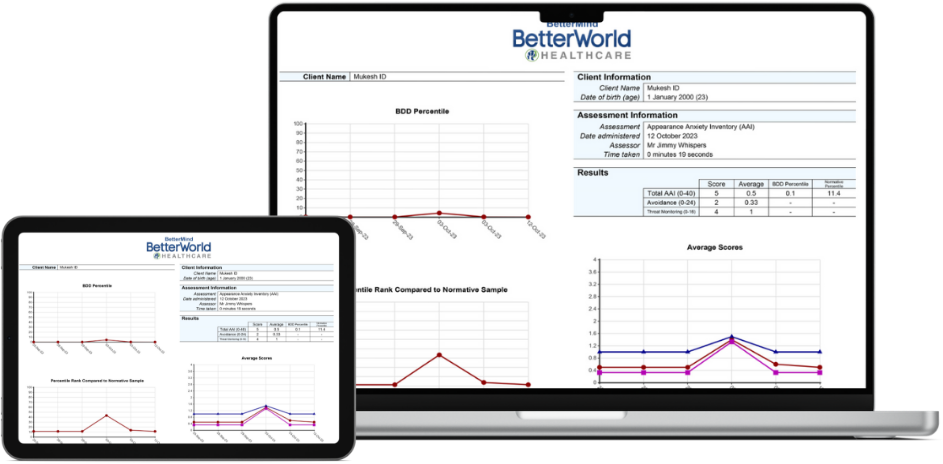Perfectionistic Cognitions Inventory (PCI)
Assessments
Description
The Perfectionistic Cognitions Inventory (PCI) is a 25-item self-report inventory that measures automatic thoughts related to perfectionism. Items on the PCI reflect direct thoughts related to perfectionism and the individual’s awareness of their perfectionism. Compared to other measures of perfectionism the PCI measures state perfectionism by exploring the frequency of thoughts over the last week. It is appropriate for people 15 years and over.
Research has found that high levels of perfectionism cognitions are associated with higher levels of psychological distress (Flett et al., 1998; Flett et al., 2007)
Validity
The PCI was developed by Flett and colleagues (1998). During the validation study the scale was administered to 747 university students and results indicated high internal consistency and found that the scale accounted for unique variance in psychological distress. Additionally, Flett and colleagues (2007) found that the PCI accounted for unique variance in depression and anxiety in a clinical sample of 258 psychiatric patients.
Normative data for community and clinical samples exist for the PCI (The University of British Columbia). The community sample was broken down into ages with individuals aged 18 – 25 (N = 205) having a mean score of 42.15 (18.39) and individuals aged 26 – 45 having a mean score of 36.30 (18.35). The clinical sample of psychiatric patients (N = 1045) had a mean score of 44.89 (23.71).
Interpretation
Items are summed to obtain a total score. Higher scores indicate increased perfectionism cognitions.
Percentiles are presented to indicate how the PCI scores compare to the community and clinical sample (The University of British Columbia). A percentile of approximately 50 compared to the Community sample represents average (healthy) levels of perfectionism, and scores above, for example, the 85th percentile represent clinically significant perfectionism. The clinical percentile represents how this individual scores compared to psychiatric patients. Given individuals in psychiatric care tend to be slightly more perfectionistic, the psychiatric percentile will be slightly lower than the community percentile.
Developer
Flett, G. L., Hewitt, P. L., Blankstein, K. R., & Gray, L. (1998). Psychological distress and the frequency of perfectionistic thinking. Journal of personality and social psychology, 75(5), 1363.
Try it and see how BetterMind can enhance your practice

Support
Frequently Asked Questions
You’ve got questions, we’ve got answers. Below you can find answers to some of the most frequently asked questions. If you can’t find the answer you’re looking for, please feel free to reach out to us at info@betterworldhealthcare.com.
I can’t open test results within the Web Browser
Assessment result PDFs are opened in a new tab within the web browser. If you click the results but they do not open, your browser will be blocking the popup. To resolve this, after you have pressed the test result, look out for an alert at the top of your browser notifying you that a pop-up has been blocked, then click "Allow".
I have forgotten my password. How can I reset it?
If you have forgotten your password please press “forgot password” within the app, or on the Web Browser App login page (https://app.bettermind-app.com/login). You will receive a new temporary password via email.
Can a Practitioner access BetterMind from their Smartphone?
No, A Client /Patient can answer assessment questions on a smartphone but the Practitioners/ Users can't administer BetterMind using a Smartphone. A computer, laptop or tablet will have to be used.


